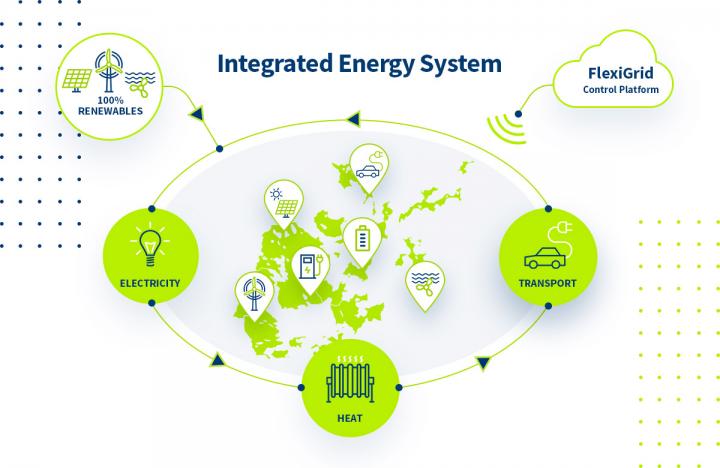
Credit: Heriot-Watt University
Governments throughout the world have accelerated their ambitions towards effective climate change mitigation. What is clear, in this challenge of how to tackle the complex and global issue of climate change, is that there is no one technology or stakeholder that will drive the full and timely decarbonisation that the world and its citizens require.
Therefore, as part of this global energy transition, there is an unprecedent increase in decarbonisation investments accompanied with new levels of accessibility to both energy systems and markets. So, a key research question is how best to understand and optimise the value proposition for different stakeholders. Due to the need to fast track decarbonisation and to ensure that this is an inclusive energy transition with social justice and equity at its core, we need to understand the dynamics and interdependencies across people, technology and economics.
A team of researchers within the Smart Systems Group at Heriot-Watt University, have been exploring how Game-theoretic models could represent a promising approach to study strategic interactions between self-interested private energy system investors.
In this research, we design and evaluate a game-theoretic framework to study strategic interactions between profit-maximising players that invest in an electrical network, renewable generation and storage capacity. Specifically, we study the case where grid capacity is developed by a private renewable investor, but line access is shared with competing renewable and storage investors, thus enabling them to export energy and access electricity demand.
Professor David Flynn, founder of the Smart Systems Group, stated; “We model the problem of deducing how much capacity each player should build as a non-cooperative Stackelberg-Cournot game between a dominant player (leader) who builds the power line and renewable generation capacity, and local renewable and storage investors (multiple followers), who react to the installation of the line by increasing their own capacity. Using data-driven analysis and simulations, we developed an empirical search method for estimating the game equilibrium, where the payoffs capture the realistic operation and control of the energy system under study.”
The results within this research use a practical demonstration of the underlying methodologies, for a real-world grid reinforcement project in the UK. The methodology provides a realistic mechanism to analyse investor decision-making and investigate feasible tariffs that encourage distributed renewable investment, with sharing of grid access.
###
The journal was recently published in IEEE Access, led by Professor Flynn’s Smart Systems Group at Heriot-Watt University, and supported by the UKRI Responsive Flexibility, ReFLEX, whole system demonstrator project, and the UKs EPSRC National Centre for Energy System Integration.
Media Contact
Susan Kerr
[email protected]
Related Journal Article
http://dx.




